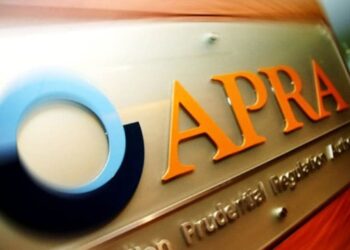The Australian Prudential Regulation Authority (APRA) is investigating the dividend policy of superannuation funds as several entities have paid out dividends despite the funds posting losses for members.
Labor MP Dr Andrew Leigh pointed as one example that for 2019/20 Colonial First State paid $174 million of dividends while giving members negative returns.
“Colonial First State has just failed the performance test. What monitoring you do around the specific issue of dividend payments in ensuring that funds serve the best financial interest duty?” Leigh said.
Margaret Cole, APRA executive board member, said the best financial duty required the regulator to make enquiries of licensees’ dividend policy and practices.
“That change in the duty – specifically the reversal of the burden of proof – means they have to explain to us how they approach their dividend policy,” Cole said.
Leigh pointed to four for-profit super funds that failed the performance test: BT Retirement Wrap, Colonial First State First Choice Superannuation Trust, AMG Super and Asgard Independence Plan Division Two, and asked if it was appropriate for funds to be paying dividends this year.
Cole said she could not confirm when those funds were timing the payments of those dividends, particularly as it related to change in the duty.
“I ought to make the point that we haven’t just made enquiries of those four but across all of the ones where this is a relevant consideration,” Cole said.
“The duty comes into effect in 1 July and the reverse onus of proof, so essentially we’ll be taking a forward-looking view of this.”
Asked whether there should be a reverse onus of proof on the trustee to show it was in the best to be paying a dividend after a failed performance test, Cole said the reverse onus of proof applied.
“The question of whether dividends should be paid now that new duty and test is there – It applies across the board, whether or not there has been a recent fail of the performance test,” Cole said.
APRA would not yet comment to whether there would be a performance note on the payment of dividends.
“For the moment given we’ve made these enquiries we will see what the responses to those are and we will take a view on it,” Cole said.
“I’ve been meeting entities since I’ve been here and I’ve been asking this question already about whether this new duty gives them cause to think about their dividend policy, procedures and practices.
“I want to see the answer to those questions fairly soon and we can take a view on what the best way forward is.”
Westpac chief executive, Peter King, had also been questioned by Parliament on paying out dividends with contributions of super products of which $10 million had been contributed over the last five years.
“[Another $210 million in profit] is from the platforms business, and then there’s some costs that sit in other parts of the group that aren’t allocated back to that particular business; they’re held outside that legal entity,” King said.
“The question was asked ‘how much was the dividend paid from the subsidiary’… but not all the business of superannuation sits under that subsidiary and other business sits under the subsidiary. It’s not just a legal entity that only does super.”





AMP Super – checked by Super and I had negative 3.42%. The whole year’s employer contribution was lost. AMP selling dead investments and charging me monthly fees. No due diligence to check share stock performance.